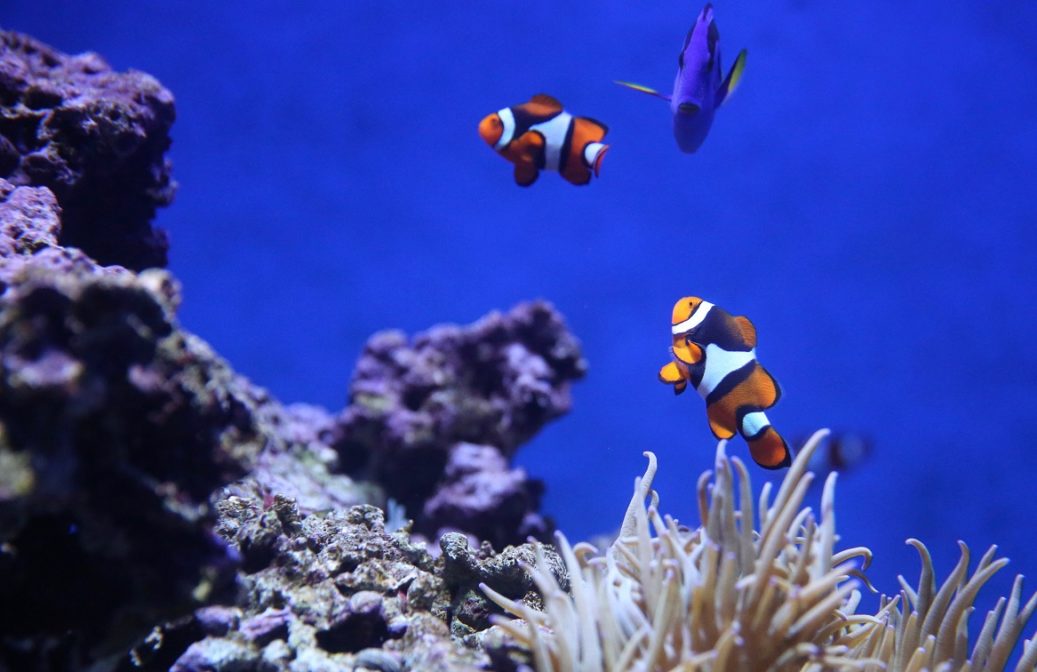The toughest thing about being a parent (or a dad) is learning when NOT to be one. You don’t have to take my word for it. Just ask Marlon. His wife was brutally attacked and killed by a man-eating barracuda, thrusting him into the role of being a “single dad.”
Before you get too caught up in Marlon’s story, I must explain that Marlon is a fish, and his son’s name is “Nemo.” Yes, the scenario I just described is a scene from the Pixar movie Finding Nemo.
It’s Hard To Let Go
Although only an animation film, Finding Nemo portrays the real-life struggles many parents face in letting go of their children.
As in real life, most dads (and children) don’t see the potential dangers of being an overprotective parent. And it’s easy to understand why many men would respond the way Marlon did, especially if they had a daughter. While growing up in an inner-city ghetto myself, there were many barracudas waiting to devour me.
Like most children, Nemo became very upset with his “loving” father’s obsession with protecting him from unforeseen danger. During one heated exchange, Nemo uttered the phrase that strikes fear in the hearts of every parent: “I hate you.” As a result of his father’s controlling behavior, Nemo intentionally rebels against his father and is consequently “fish-napped” by a diver.
Three Lessons On Letting Go
After seeing this movie with my wife and my own son, three profound lessons about parenting came to mind:
1. We can only prepare our children for life’s mistakes, not prevent them.
As a child, I was amazed by how cool and calm my mom (who was a single parent) always appeared to be raising my younger sister and me. Personally, I was scared to death of my environment. On any given day walking to school, I could be solicited by a prostitute, dodging bullets, assaulted by a gang, or watching a drug deal take place. As a child, this experience almost seemed surreal. If anyone should’ve been overprotective and controlling, it should’ve been my 4’ ft. 11” mother.
After I graduated from college, I asked my mother how she was able to remain so balanced as a parent, and at the same time, teach us to be independent and strong. My mother simply said, “I didn’t do much; I just taught both of you right from wrong, and I just prayed that the mistakes you were going to make wouldn’t kill you.”
In contrast with Marlon, my mother didn’t control our mistakes; instead, she prepared us for them before we made them. And God answered her prayers because even the bad ones (mistakes) didn’t kill us.
2. We have to treat our children as if they’re already the person they’re capable of becoming.
Instead of putting the labels of “needy” and “helpless” on our children, what would happen if we gave them a label of “greatness”? I think we would be literally shocked by how great our children could become and how well they could “swim on their own.”
For instance, when my son was 7 years old, I asked him if he wanted to go to the park and shoot baskets on the “big boys” basket. Of course, he enthusiastically agreed. However, after his first shot, he soon realized that the 10-ft. basketball hoops were too high for him. He immediately became discouraged and started to cry. The “Marlon-nature” came out in me as I got the sudden urge to put him on my shoulders and let him make a basket the easy way — to protect him from disappointment. But I immediately came to my senses and said something totally outrageous. I said, “Kendall, before we go home today, I believe you’re going to make a basket; just keep trying.”
Well, by changing my son’s label from “you’re too small” to “you’re tall enough,” he continued shooting for what seemed like hours (actually 30 minutes) until he eventually made his first basket ever on the “big boys” basketball goal. And to be quite honest with you, I don’t know who was more thrilled – him or me. But it was an experience I’ll never forget. By the time we left the park, I had watched my son score 19 baskets all by himself! Nemo would’ve been proud.
3. We need to let ourselves “off the hook” by giving ourselves credit for being good parents.
Too often, we become our own worst enemy by becoming our biggest critic when it comes to parenting. No one will argue that being a parent is one of the toughest jobs on the planet, but we shouldn’t complicate things by beating ourselves up over every mistake we make. We just need to admit them, learn from them, and not repeat them. Think about it: God was the “perfect parent” and look at what happened to Adam and Eve.
No one will argue that being a parent is one of the toughest jobs on the planet, but we shouldn’t complicate things by beating ourselves up over every mistake we make.
Sometimes it’s good to be tough on yourself, but parenting was never about perfection; it’s all about connection. Connecting with our children so that they will always feel comfortable coming to us to discuss their joys and pains. Regardless of how good or bad we think we are as parents, the only question a child really cares about is, “Were you there when I needed you most?” Being “there” emotionally for our children will cover a lot of parenting mistakes.
Learn When Not To Be A Parent
Marlon learned from his mistakes. But more importantly, he learned that being a parent is learning when NOT to be one. And as parents, we must come to the realization that we can’t grow the tree without first letting go of the seed.
So, let it go, and watch it grow.
About


